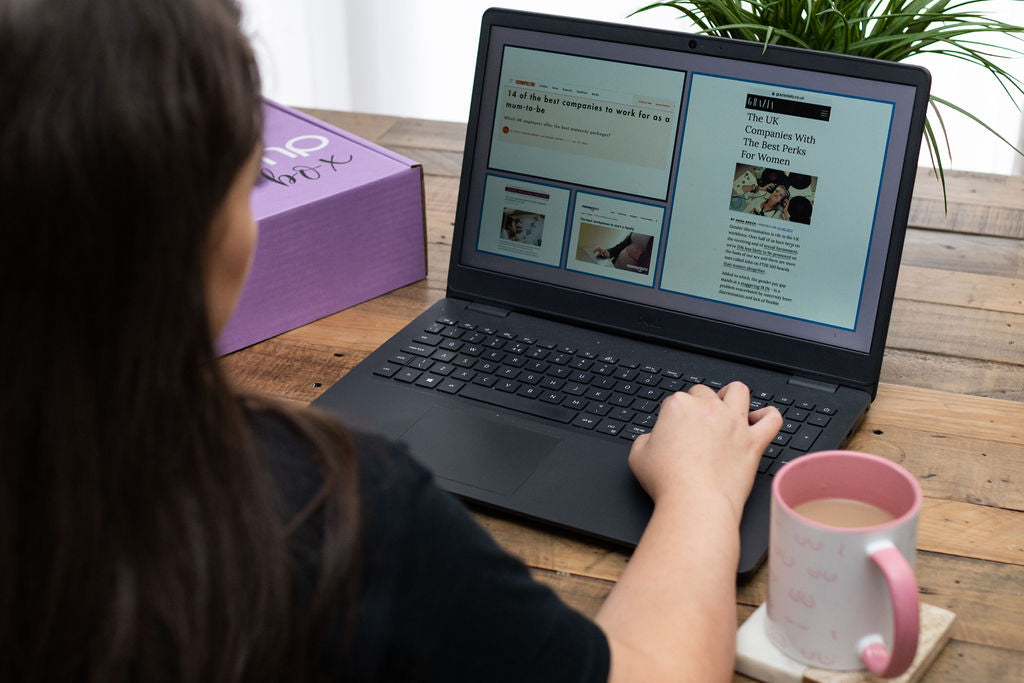Why lactation rooms in the workplace matter

There are lots of factors that impact a mum’s journey back to the workplace after having babies. One of those is wanting to continue breastfeeding. But what does that look like in the workplace and how can employers make the experience better for new mums?
In this blog post we’re going to explore why lactation rooms matter and how employers can make the return to work experience better by providing one that goes well above the minimum standard.
Why do we need workplace lactation rooms?
Lactation rooms in the workplace are essential for working mums who want to continue breastfeeding their babies after returning to work. These rooms provide a private and comfortable space for nursing mothers to express milk and also store it until they can take it home to their babies.
Are they a necessity?
In many countries, providing lactation rooms in the workplace is a legal requirement. Failure to provide these facilities can result in legal action and fines.
Here in the UK, before returning to work, mums are required to give their employer written notification that they’re breastfeeding. Their employer must then do a specific risk assessment. The Health and Safety Executive (HSE) recommends that employers provide a private, healthy and safe environment for breastfeeding parents to express and store milk (i.e: not the work toilets!).
We believe that lactation rooms are a necessity. The best lactation experience for people means an environment that feels safe, comfortable, and relaxing.
Lactation rooms are important in the workplace for three main reasons:
Supporting working parents (& improving employee retention)
Working mothers are often forced to choose between their careers and their families. Providing lactation rooms in the workplace shows a commitment to supporting working mothers, increasing the likelihood that they will stay with their current employer rather than seek alternative employment options.And we want to retain the staff we’ve invested in, don’t we?
Lactation rooms provide a dedicated space for nursing mums to express milk, enabling them to continue breastfeeding and bonding with their babies. This support can help them feel valued and respected by their employers, increasing their job satisfaction and reducing stress levels.
Promoting baby’s (and mum’s) health
Breastfeeding has numerous health benefits for both babies and mothers. By providing a private and hygienic space for expressing milk, lactation rooms promote healthy practices and reduce the risk of infections and illnesses. And when the baby is healthy, your employee is less likely to need to take days off to care for them.
Increases productivity
Breastfeeding can be time-consuming, and without an easily accessible lactation room, working mums may need to take extended breaks or miss work altogether to express milk. By providing a dedicated space (that’s not miles away from their workspace) for expressing milk, lactation rooms enable working mothers to continue working without interruption, increasing productivity and reducing absenteeism.
The reality: a lack of support for lactation
There are many poor experiences recounted online of people who’ve been forced to pump in the corridors, work toilets, or being expected to express milk in front of male colleagues in a shared office. Just Google “bad experiences of pumping at work” and you’ll find horror stories everywhere! It’s not good enough.
One woman describes having to pump in a classroom that had ongoing surveillance recordings. Another describes how a “designated lactation space” she’d been promised actually turned out to be a bathroom cubicle with a chair placed in it for her to express on.
Other women have reported being forced to pump on the company schedule (set breaks) with no flexibility offered. One wrote that she had 15 minutes to get from her desk, across the building, fully set up, pump, store milk and get back to her desk or face the consequences of going over her allotted break time.
One mother wrote about how she had to walk out of her building, across the car park to the opposite side of the company plot and a separate building to get to the designated lactation room.
Luckily more workplaces are learning that providing lactation rooms is actually hugely beneficial for ALL employees and the company itself.
Reap the rewards of a supported parent
Returning to work after maternity leave can be a stressful time and knowing that your employer is going the extra mile to support your journey to be as easy as it can be.
We want mums to return to work confidently, enriching the workplace with their own diverse experiences of parenthood. And we can do that by providing policies and practices that encourage this!
A great example was when we (Parent Promise) worked with Rock Solid Knowledge – a tech company – who had their first experience of an employee going on maternity leave. They wanted to make her return to work experience excellent and improve their practice for the future. And their successful changes made her feel reassured that her employers care about her, and she felt more loyal and secure as a result. It also set the company up as an employer of choice in the tech industry.
So what can you do to make your lactation room better?
When we work with companies, we offer recommendations for your lactation room, describing the essentials and the nice-to-have items that should be present.
Here are a few simple ideas to improve yours.
- Ensure there’s a comfortable chair & a coffee table
- Lockable door
- Small fridge for milk storage
- Electrical outlet for electric pumps/laptops
- Sink for washing equipment & bottles
- Kettle with a range of lactation-friendly teas
- A radio
Of course there are a tonne more, and we tailor our recommendations to the size of your company’s space and needs.
Improve your lactation room with Parent Promise
Lactation rooms in the workplace really are an essential resource for working mums, promoting health, productivity, and job satisfaction, while also helping employers comply with basic requirements and retain valued employees. And we want to help you be better than the standard when it comes to supporting working mums!




